Canoo Inc., originally founded in 2017 as Evelozcity, is the brainchild of Stefan Krause and Ulrich Kranz. Stefan Krause, who previously held the position of chief financial officer at Deutsche Bank, teamed up with Ulrich Kranz, a senior executive at BMW.
Their professional paths first crossed at the EV competitor Faraday Future. In 2017, they left Faraday Future due to disagreements with the company's leadership and established the highly innovative EV design and development enterprise we know as Canoo.
The road to global recognition has been rough for Canoo Inc., but their creations – Canoo pickup trucks, MPDV, and LV have already written their names in the sands of time, even if their story goes the way of, hopefully not, Fisker Karma.
Related Reading: The UK’s Most Affordable Electric Car, The ₦6 Million Ark Zero, Might Just Be The Perfect Commuter Car
From Evelozcity To Canoo: The Storm Came Early
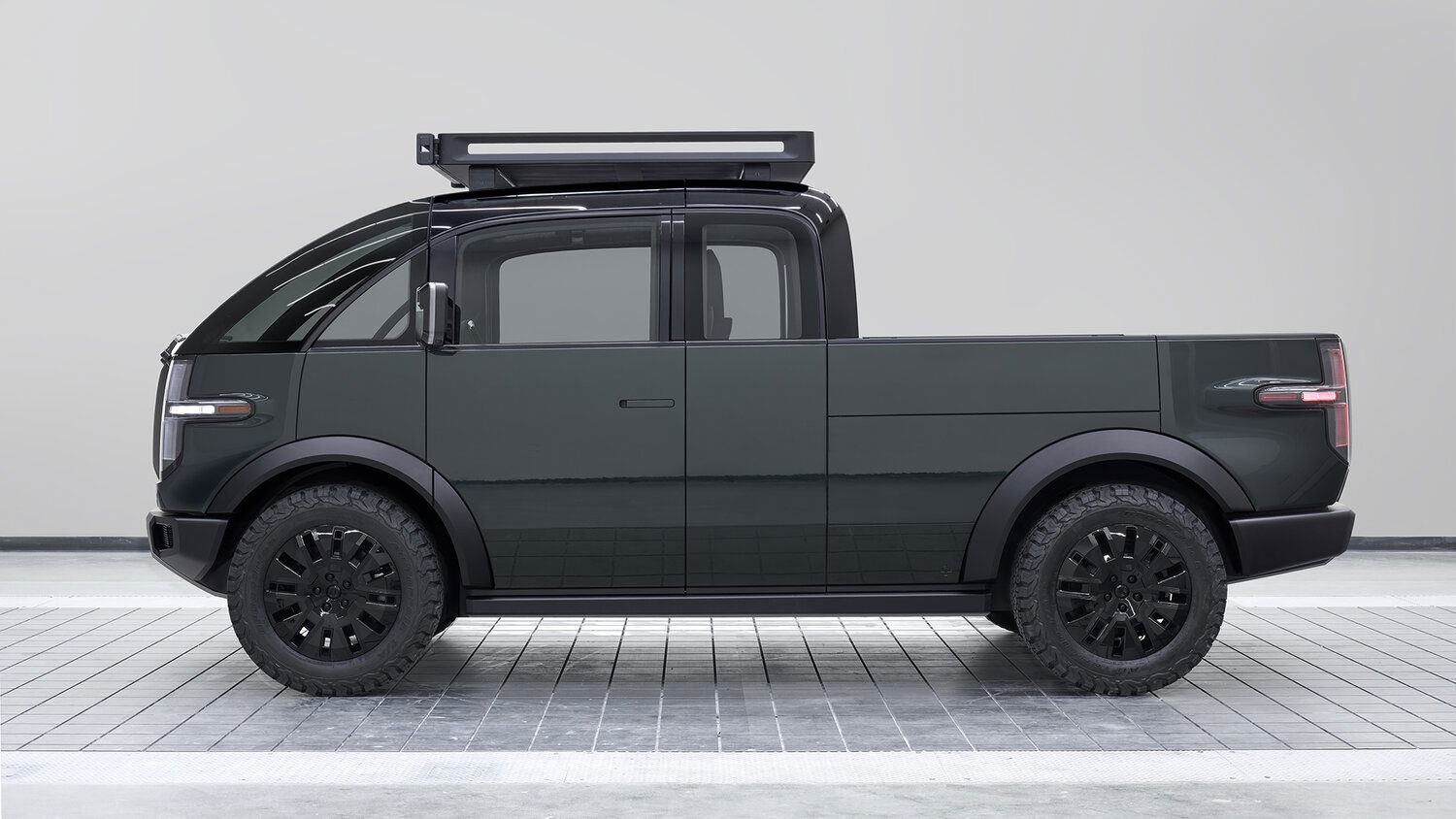
Stefan Krause assumed the role of chief executive officer (CEO) at Evelozcity, while Ulrich Kranz became the company's chief technology officer (CTO). The initial funding for their ambitious venture came from Chinese investor Li "David" Pak-Tam/Botan and German entrepreneur David Stern.
The new company soon bolstered its team by recruiting former Opel head Karl-Thomas Neumann as a senior Evelozcity executive. Evelozcity underwent a significant transformation in March 2019 when it adopted the name "Canoo." In July same year, Karl-Thomas Neumann left the company but retained an investment stake in it.
Fast forward to December 2022, Canoo found itself entangled in a legal battle already. The company filed a lawsuit against several former executives, accusing them of stealing Canoo's trade secrets and luring away talent to join their new venture, Harbinger Motors, a competing EV startup.
The First Canoo Lifestyle Vehicle And The NASDAQ Debut
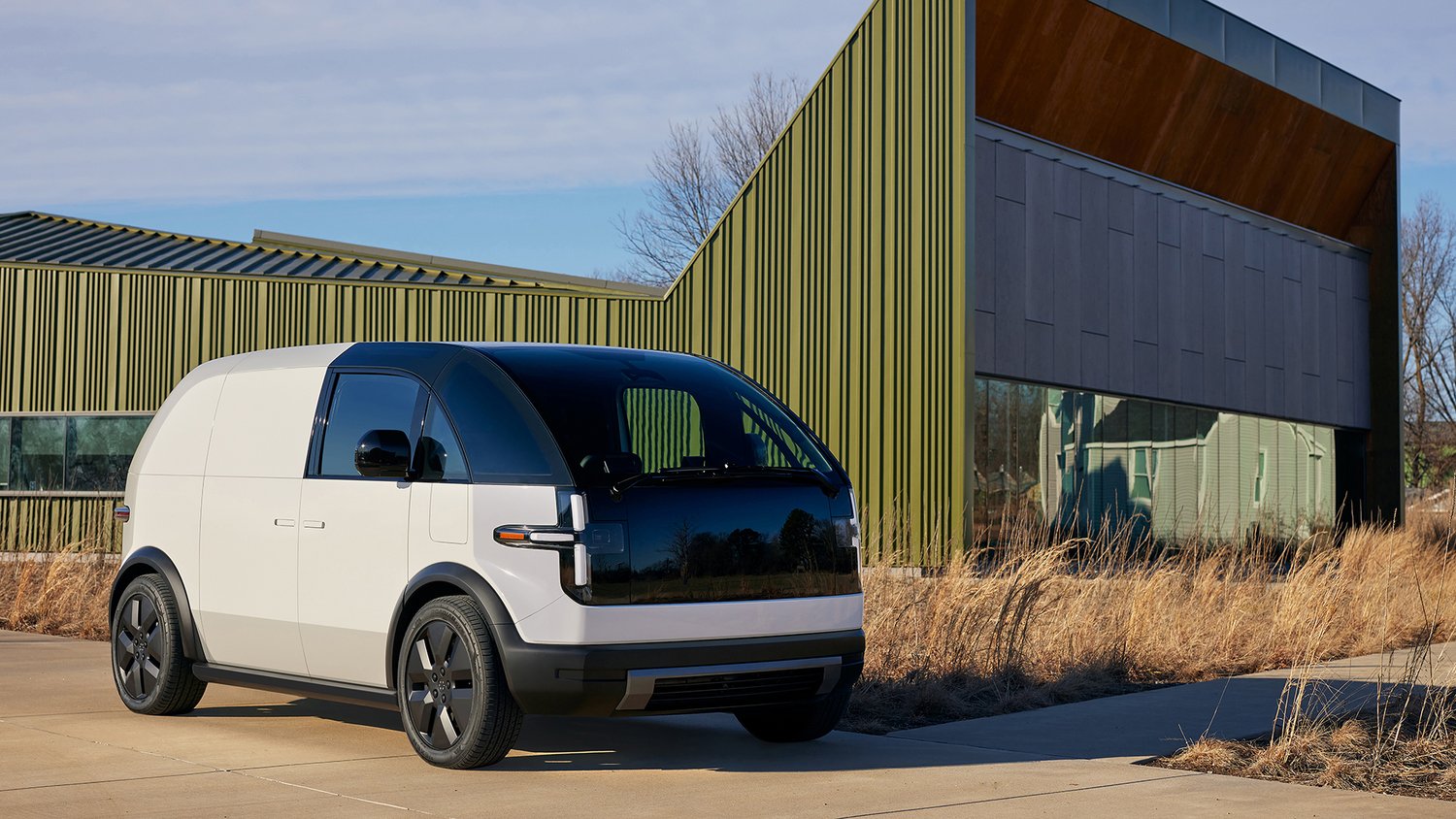
Canoo’s first prototype was born in September 2019. The new baby was simply called "Canoo" but was later rebranded as the "Canoo Lifestyle Vehicle (more on that soon)."
Hyundai Motor Group couldn’t help but notice the beautiful and innovative Canoo LV electric van and, in February 2020, disclosed a strategic partnership with Canoo for the joint development of a novel electric vehicle platform. This platform was intended for compact vehicles and used in fleet applications like shuttles.
Hyundai's commitment to this collaboration was part of its broader Strategy 2025 program, entailing a substantial $87 billion investment over five years. Not long after this billion-dollar announcement, in July precisely, Canoo's co-founder, Stefan Krause, left the company too. Krause had previously taken an extended leave of absence in August 2019 for family reasons.
Following his departure, co-founder Ulrich Kranz assumed the role of permanent CEO. Krause’s departure was more or less overshadowed (or amplified, depending on your vantage point) by the brand’s featuring in Jay Leno’s Emmy-winning TV series “Jay Leno’s Garage” the same month of Krause’s departure.
Barely two months later, Canoo announced a merger with the special-purpose acquisition company Hennessy Capital Acquisition Corp. IV., a move aimed at facilitating Canoo's listing on the NASDAQ with a valuation of $2.4 billion.
The merger's objective was to raise $300 million in capital to support the production of the Canoo minivan scheduled for launch in 2022. This merger was done and dusted on December 22, 2020.
The 2024 Canoo Lifestyle Vehicle
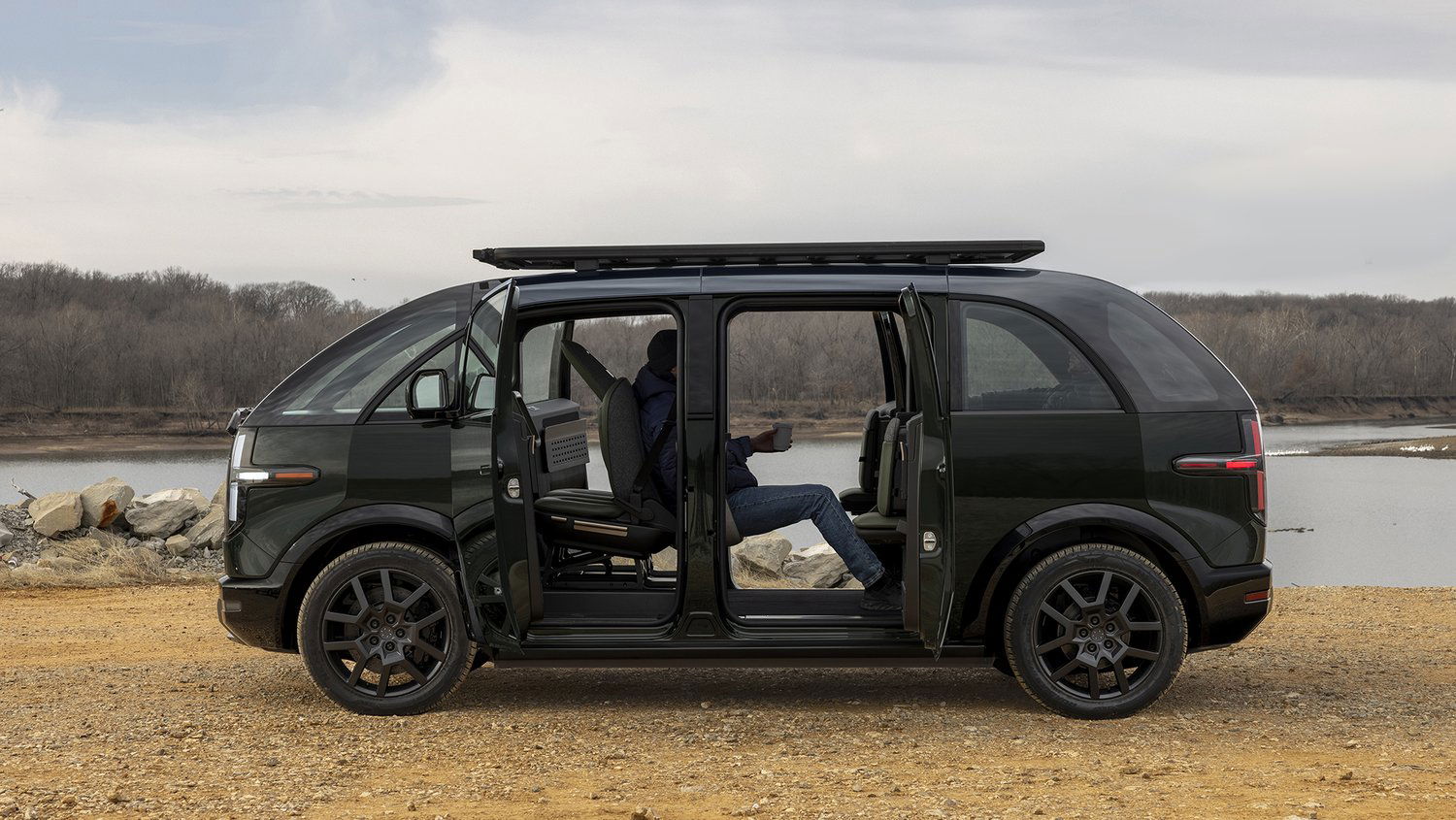
The Canoo LV (Lifestyle Vehicle) is an innovative and exceptionally versatile EV offering multiple configurations with seating for 2-7 passengers. Despite its compact exterior dimensions, it provides the interior space of a three-row SUV.
The Canoo LV measures 174.1 inches in length, 74.6 inches in width, and 72.7 inches in height, with a 112.2-inch wheelbase. In comparison, the compact Toyota RAV4 is longer, and the three-row Toyota Highlander is larger in most dimensions.
The Canoo LV uses a single rear 300-hp electric motor generating 332 lb-ft of torque and propelling the van from rest to 60 mph in 6.3 seconds. It has an estimated top speed of 125 mph. The Canoo LV features an 80-kWh battery, aiming for a range of 250 miles, and a fast-charging capability, taking you from 0-80% in just 28 minutes.
The best part, perhaps, is the Canoo LV’s pricing. Starting at under $40,000, it competes in a more affordable price bracket compared to other three-row electric vehicles like the Tesla Model X and Rivian's R1S. The LV's minimalist, two-seat Delivery variant is expected to start around $35,000, while the Premium and Adventure models are priced slightly higher.
Ulrich Kranz Steps Down, And The SEC Touches Down
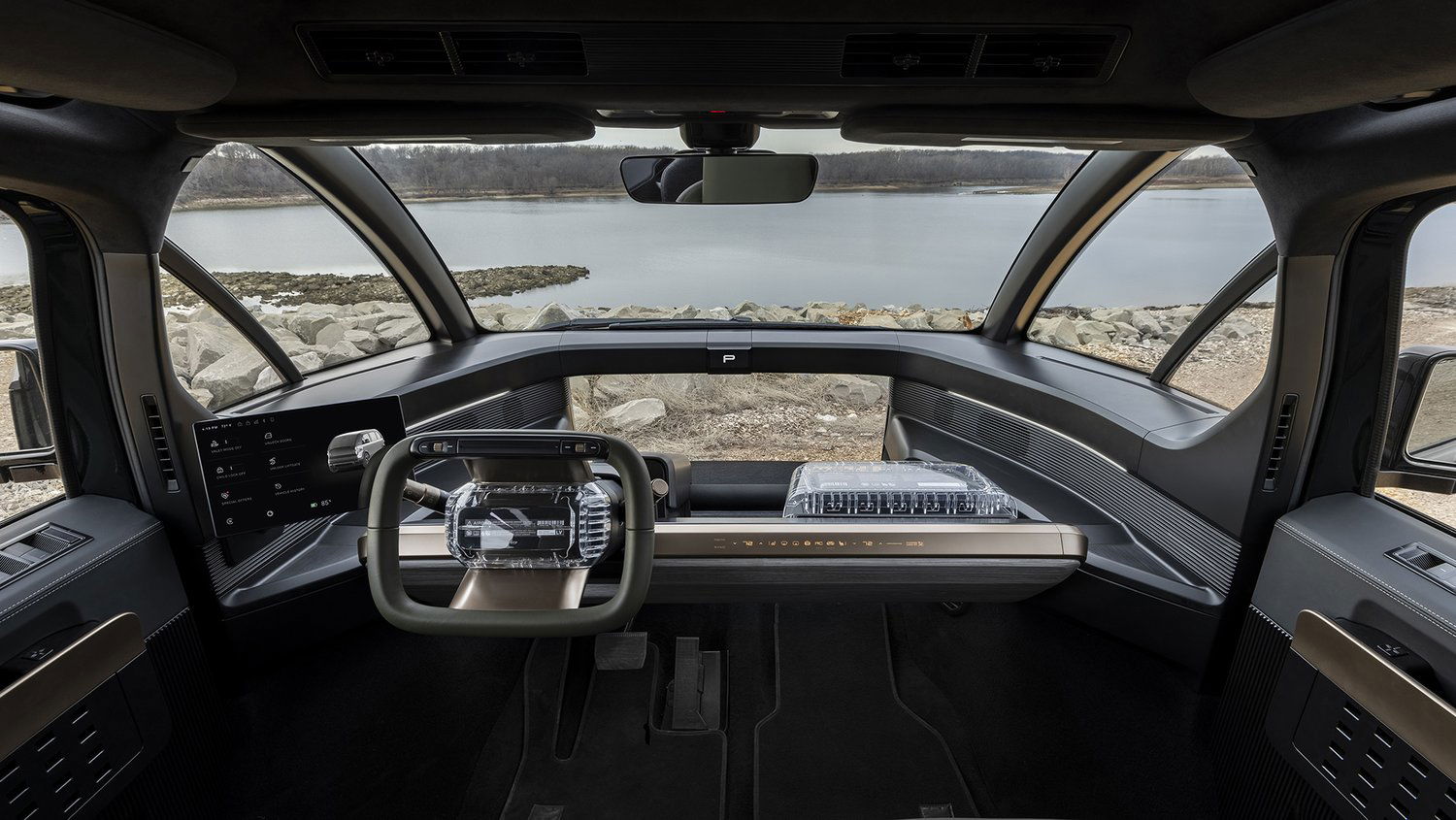
On March 11, 2021, Canoo made a significant announcement by introducing the Canoo Pickup Truck, a promising electric pickup truck slated for a 2023 release. Before then, shortly before its debut on the stock exchange, Canoo introduced the MPDV (Multi-Purpose Delivery Vehicle) product line.
The entry-level van was set to be available at $33,000 initially, with plans for increased production in 2023. In mid-January 2021, The Verge reported that Canoo had engaged in discussions with Apple during the first half of 2020 regarding potential involvement in Apple's secretive Titan car project.
Canoo's pickup truck is set to offer both single-motor and dual-motor all-wheel drive options, with the dual-motor variant boasting impressive capabilities, including 600 horsepower and 550 lb-ft of torque. The company emphasized the truck would be able to keep going for over 200 miles (approximately 322 km) and possess a substantial payload capacity of 1,800 pounds.
Following this announcement, Canoo experienced a notable surge in its stock price, with shares rising by 14%. However, in March 2021, Canoo decided to terminate its partnership with Hyundai Motor Group, citing a shift in its corporate strategy.
Concurrently, the company revealed its intention to move away from its initial focus on a subscription-based marketing strategy and instead focus on the sale of commercial vehicles.
Barely a month after re-strategizing and splitting with Hyundai, co-founder Ulrich Kranz stepped down from his role as CEO, with Tony Aquila assuming the position. During this period, the U.S. Securities and Exchange Commission initiated an investigation into Canoo.
This inquiry was prompted by a series of executive departures, sudden alterations to the company's business model, and class-action lawsuits filed by shareholders. These events drew regulatory scrutiny to the company's operations.
Canoo Breaks New Grounds And Makes New unFriends
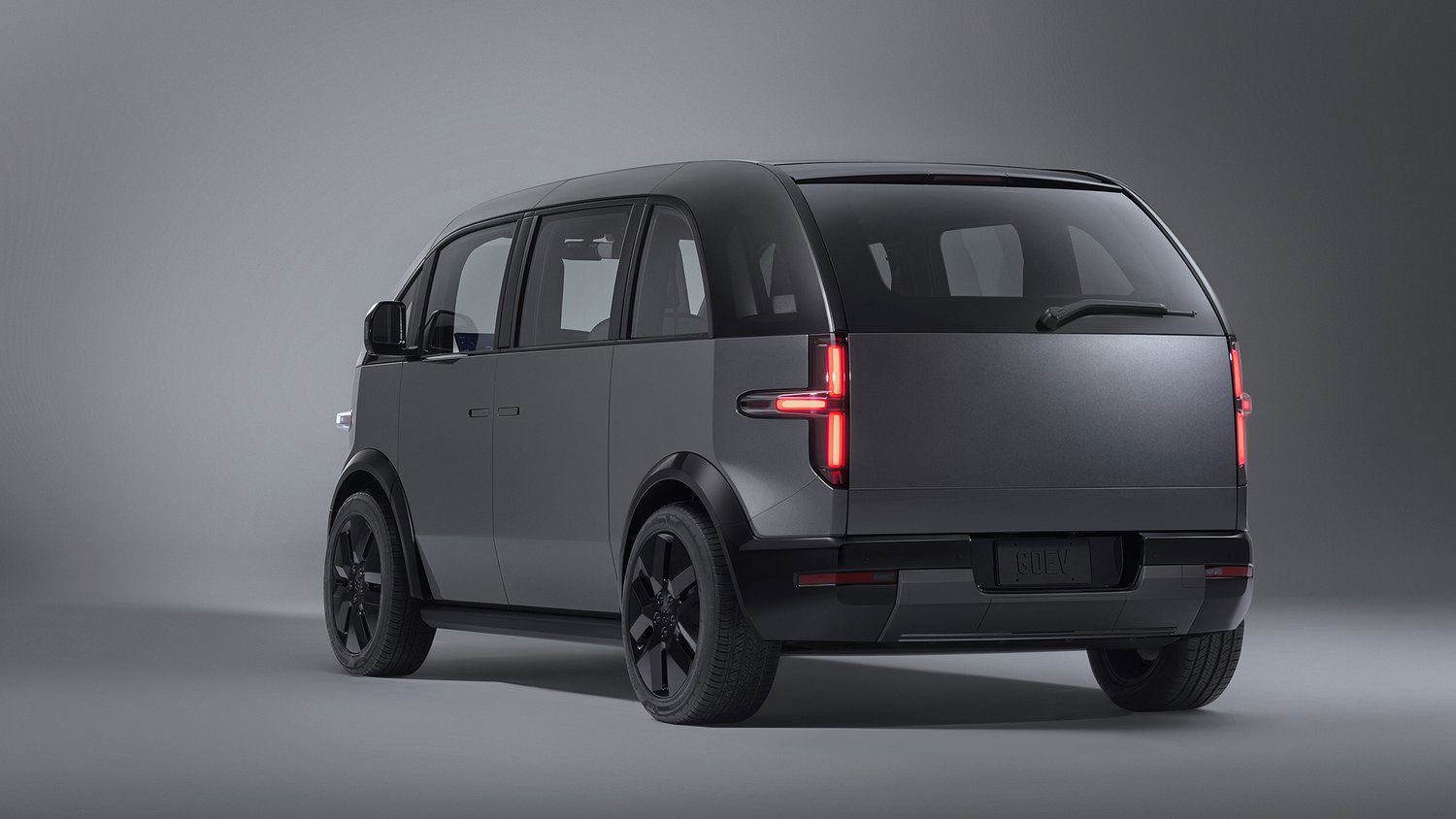
On June 17, 2021, Canoo announced plans to establish a new manufacturing facility in Pryor just outside Tulsa, Oklahoma. This facility was designated for the production of what Canoo referred to as "lifestyle vehicles," shaped like pods, with production scheduled to commence in 2023.
The dust hadn’t settled when Dutch media reported that Dutch company VDL Nedcar would be responsible for producing Canoo Minivans for the European market. Later in the year, however, Canoo and VDL terminated their manufacturing agreement.
On November 15, 2021, Canoo disclosed its decision to relocate its headquarters to Bentonville, Arkansas, and establish a manufacturing plant there. Canoo still calls Torrance, California home, at the time of writing this article.
Canoo’s Arkansas And Oklahoma Plants
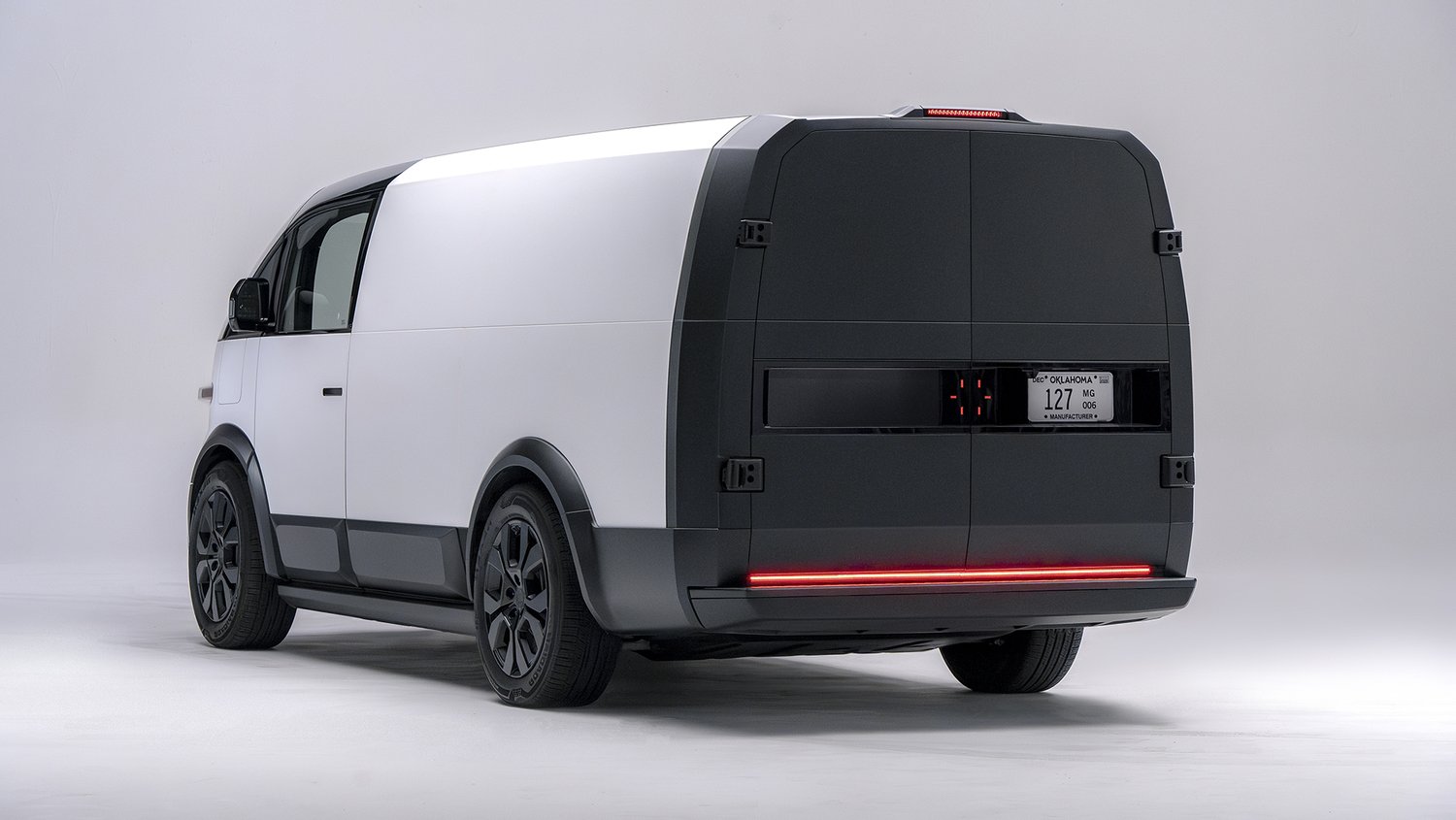
In January 2022, Canoo took a significant step by securing a 10-year lease worth $17.7 million for a building in Bentonville, Arkansas. This facility was designated as an "advanced industrialization facility" to support low-volume manufacturing operations.
Canoo's commitment to this location marked a pivotal move in its expansion plans. By August 2022, Canoo revealed they'd partnerd up with a third party to facilitate their initial vehicle production. This partnership represented a key development in Canoo's efforts to bring its electric vehicles to the market.
In October 2022, Canoo announced ambitious plans to construct a vehicle battery production facility at the MidAmerica Industrial Park (MAIP) in Pryor, Oklahoma.
This decision came on the heels of an earlier announcement regarding a vehicle production plant at MAIP with a substantial annual production capacity of 300,000 vehicles. Towards the end of November 2022, Canoo revealed an agreement to purchase an existing 630,000-square-foot plant in Oklahoma City.
The intention was to commence vehicle production at this location by 2023, preceding the completion of its micro megafactory in Pryor. This move aimed to expedite the company's ability to bring its vehicles to the market.
In April 2023, Canoo announced that battery production at the Pryor facility would proceed as part of fulfilling a contract with the United States Department of Defense. Vehicle manufacturing was also slated to commence in Oklahoma City before the end of 2023.
Notably, Canoo's long-term plans still included vehicle assembly at Pryor, as the Oklahoma City facility alone wouldn't meet the company's full production needs. The Oklahoma City plant acquisation was completed on April 7, 2023.
The plant, formerly owned and operated by Terex, represented a significant step forward in Canoo's manufacturing capabilities.
Related Reading: Meet The Small But Mighty 500-Horsepower Telo Truck MT1, A New Electric Pickup By US Startup Company
And Canoo's Biggest Customers Came Calling
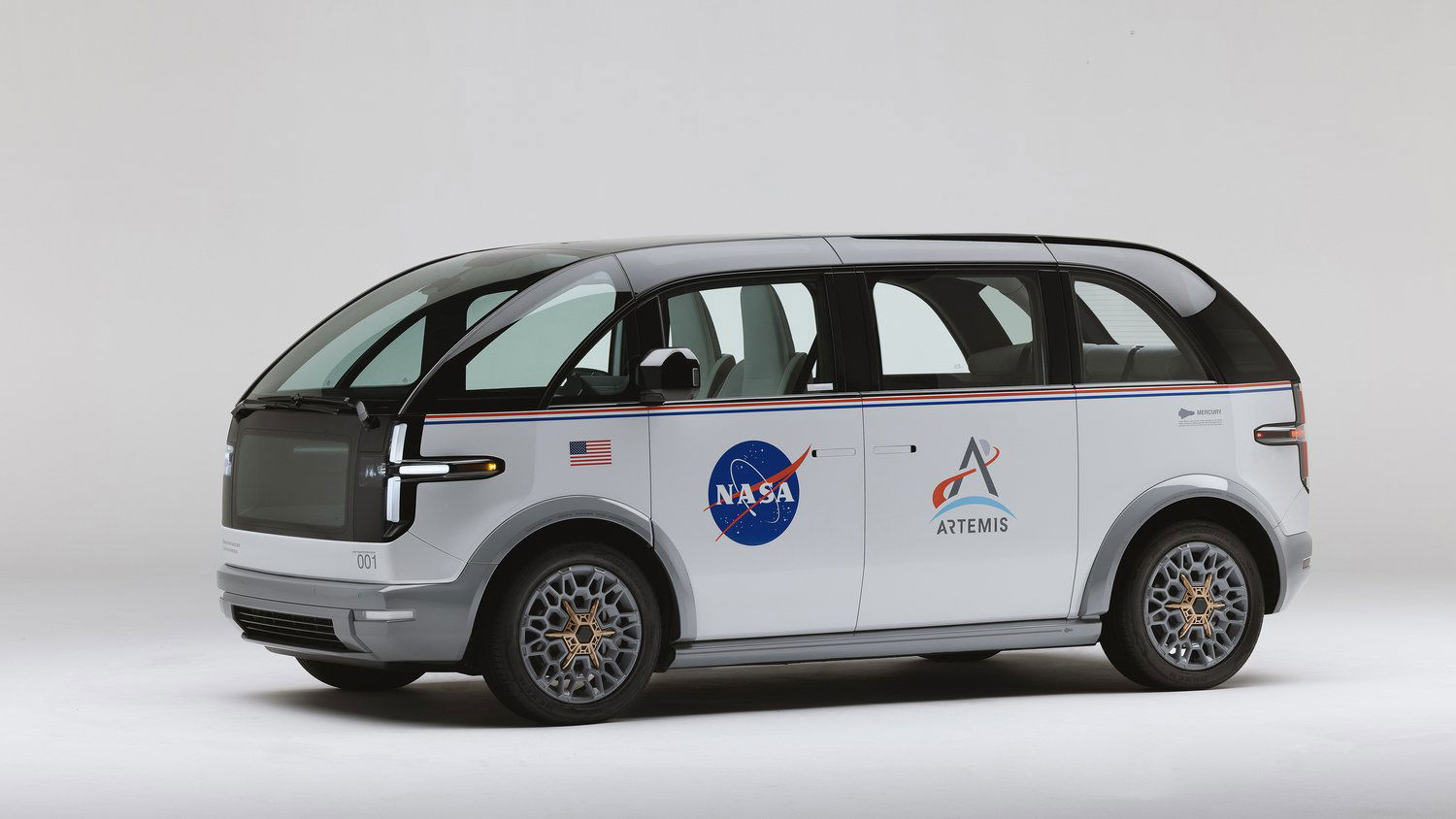
On April 13, 2022, NASA made a noteworthy selection by choosing Canoo to provide crew transport vehicles for its Artemis program. This contract carried a total value of $147,855 and underlined Canoo's supporting role in NASA's space exploration efforts.
However, by May 2022, reports emerged indicating that Canoo was grappling with financial difficulties. The company later said it had just enough funding to sustain operations for one more quarter. During this challenging period, Canoo also initiated legal action against investor Pak Tim Li, alleging improper share sales.
In July 2022, Walmart entered into a definitive agreement with Canoo to purchase 4,500 all-electric Lifestyle Delivery Vehicles (LDVs). Walmart also secured an option to potentially acquire up to 10,000 of these vehicles in the future. Notably, the agreement allowed Walmart to terminate the arrangement for convenience with a 30-day notice.
A few months later in mid-October 2022, Canoo made significant strides in its business operations. Firstly, Zeeba, a fleet leasing operation based in Greater Los Angeles, placed orders for a combined total of 5,450 LDVs and Lifestyle Vehicles (LVs). Unlike Walmart, Zeeba made a binding commitment to acquire 3,000 of these vehicles by 2024.
Shortly thereafter, Canoo announced its most substantial sale to date, involving Kingbee, a work-ready van fleet rental company headquartered in Utah. Like Zeeba, Kingbee initiated a binding order for 9,300 LDVs and retained the option to double this order.
Kingbee customized these vans for a range of fleet customers, serving sectors such as construction trades (including electrical, plumbing, and energy), delivery services, and mobile healthcare. These orders marked significant milestones for Canoo's expansion and market presence.
The Canoo Electric Pickup Truck
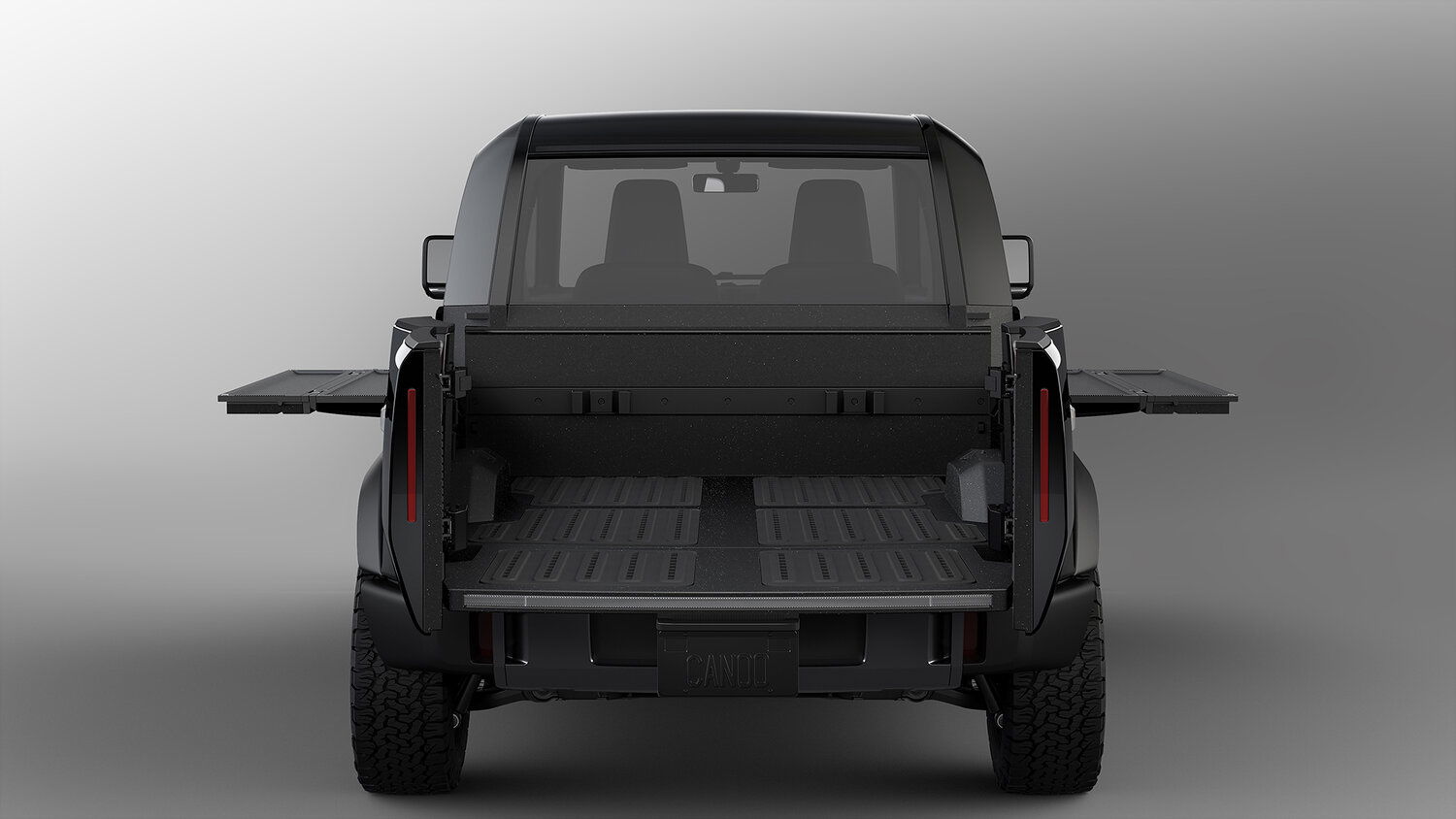
Canoo's new light-duty truck rides on its patented multi-purpose platform with a compact design. It's available in single and dual-motor setups, delivering up to 600 horsepower, 550 lb-ft of torque, and approximately 200 miles of range.
Unlike conventional EVs, Canoo's platform is remarkably versatile and efficient, eliminating the need for a traditional engine compartment. The cab-forward design optimizes visibility and space management, providing a two-seat extended cab with flexible rear seating and a modular 6 to 8-foot bed.
It also features versatile cargo options, including work tables and ample storage, and offers exportable power for various needs. The design incorporates large fender spats for bigger wheels, advanced lighting technology, and bumper-integrated foglamps for enhanced visibility and safety.
The Canoo electric pickup is versatile, catering to outdoor enthusiasts and service professionals alike.
The 2024 Canoo MPDV
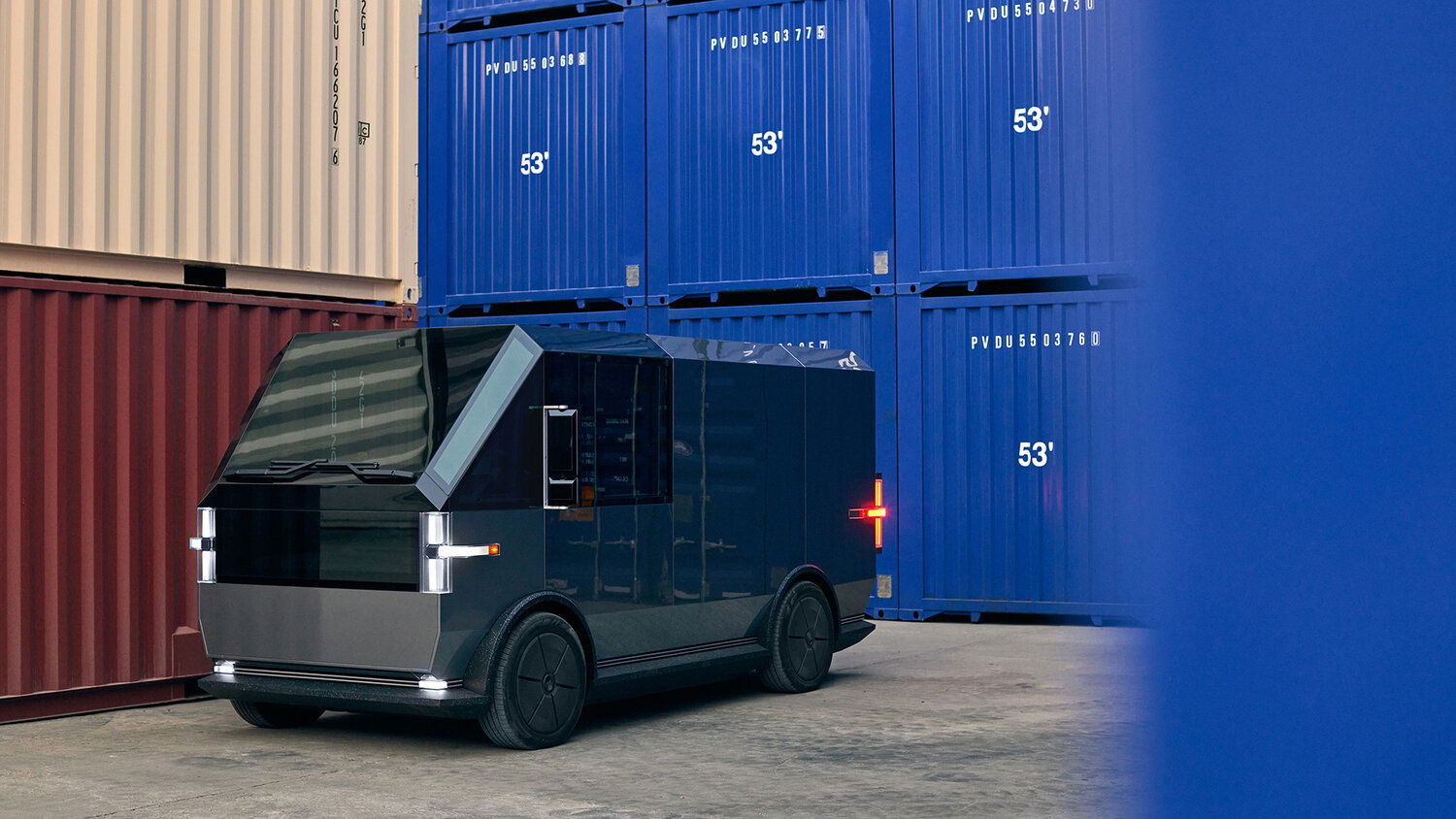
Canoo is developing electric multi-purpose delivery vans, the 2024 Canoo MPDV1 and MPDV2, aimed at reducing operating costs for businesses. These vans are built on a flat skateboard chassis, similar to Canoo's EV, and feature a steel frame, low-profile suspension, and steer-by-wire technology. They offer connectivity for data reporting, over-the-air updates, and fleet management.
To crown it all, Canoo’s MPDV supports "level 2.5" autonomy. The MPDV1 is designed for urban use. Its compact dimensions are perfect for navigating tight spaces in crowded cities and urban areas.
The larger MPDV2 offers a more spacious interior, standing 100.8” tall and allowing a 78-inch standing room inside. Both models meet passenger-car safety standards and are Class 1 vehicles. They initially come with front-wheel drive and a single motor, but their chassis is ready for a rear motor, enabling all-wheel-drive capability.
The electric motor delivers 200 horsepower and 236 lb-ft of torque, with multiple battery options (40, 60, or 80 kWh). The estimated ranges vary from 90 to 230 miles, with bi-directional charging and fast-charging capabilities available. These vans aim to provide efficient and cost-effective solutions for various business applications.
Final Word: Canoo Is Still In The Game
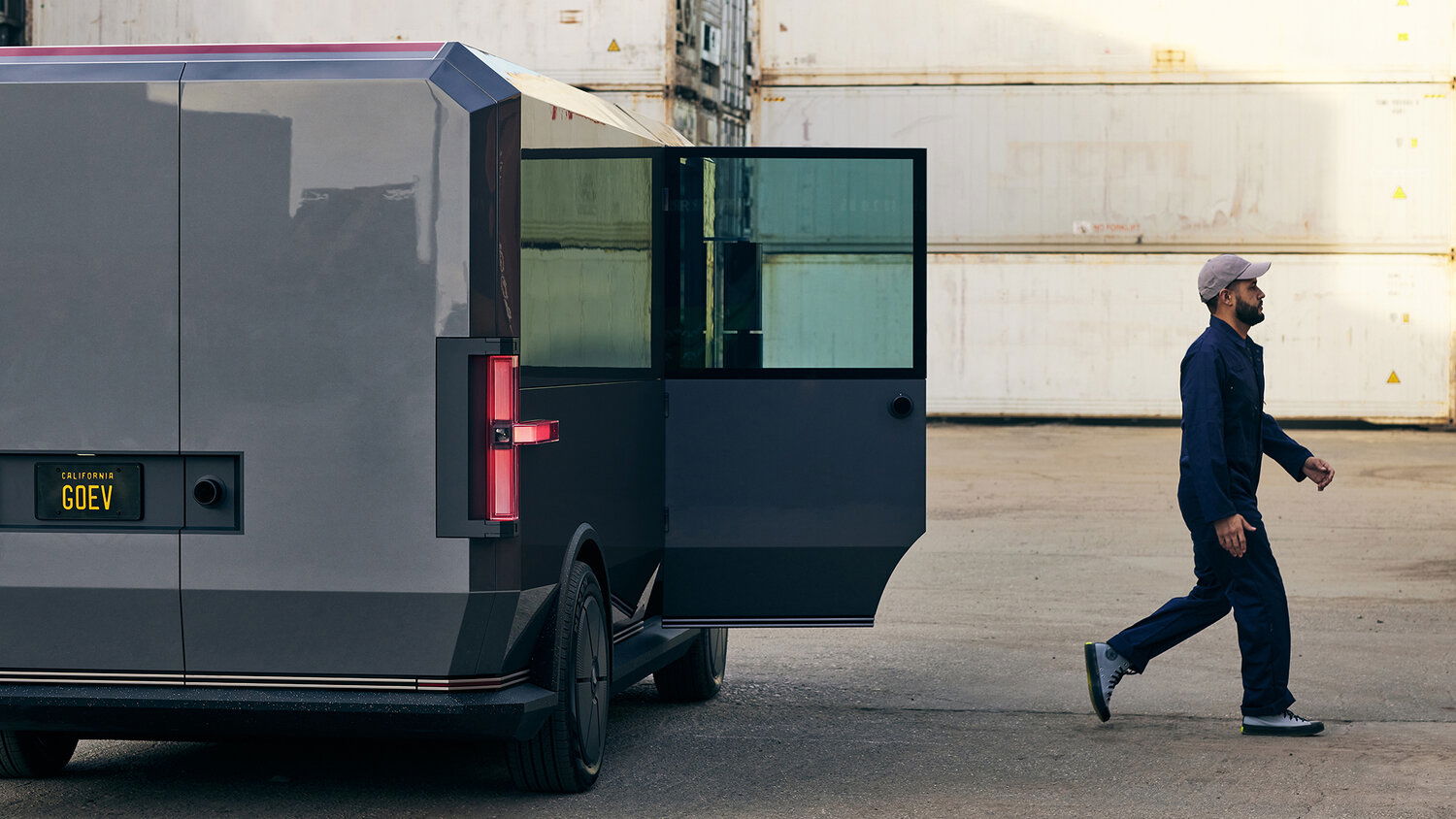
Canoo Inc., like any company, will depend on several factors to determine its success. Firstly, it needs to continue developing innovative, high-quality electric vehicles that meet customer needs and demands.
Although success depends on consumer adoption of electric vehicles (EVs are the slowest-selling new and used cars in 2023, according to iSeeCars' annual study), businesses have already demonstrated a willingness to integrate Canoo's products into their operations.
Notably, the electric vehicle market is highly competitive, with established players like Tesla, traditional automakers like Ford and Volvo, and formidable upstarts like BYD entering the space. To succeed, Canoo must effectively compete and differentiate itself.
Perhaps, even more important is the company's financial health, including funding and profitability. A clear and adaptable long-term vision and business strategy that doesn’t involve frequent departures of valuable talents is essential for staying competitive and relevant in the rapidly evolving automotive industry.